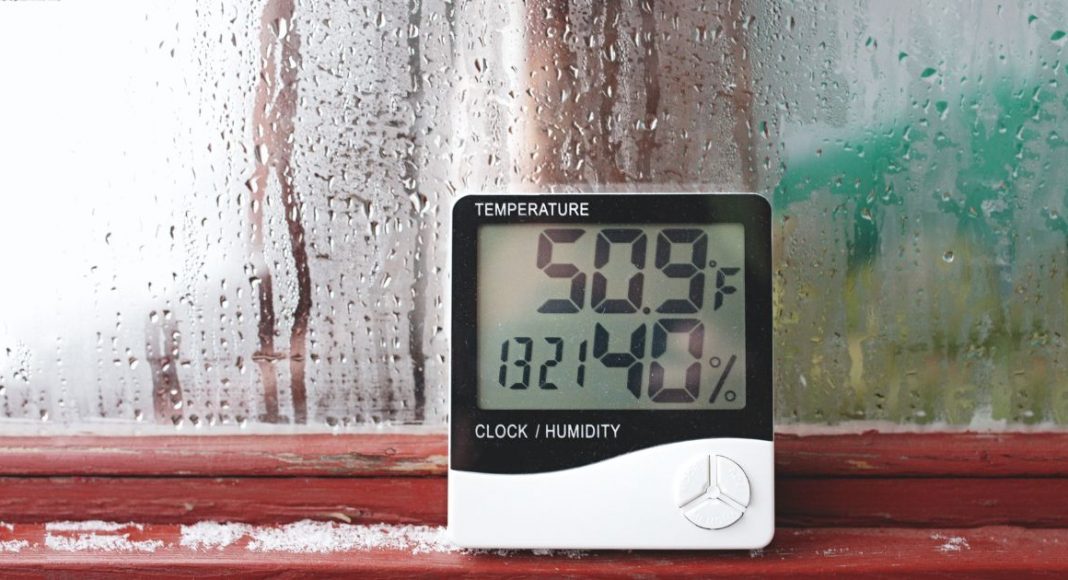Why does humidity cause oily skin? Read to know the reasons and how to prevent with 9 methods. Once upon a time, in the enchanted land of Skinville, a peculiar tale was whispered among the villagers – the mysterious connection between humidity and oily skin. Picture this: a knight in shining armor battles a dragon (or at least a bad hair day) with a trusty shield, only to find that the shield itself becomes a tad… oily? That’s right, dear reader! In our world, where skin reigns supreme, the relationship between humidity and oily skin is like a riddle waiting to be solved. So gather ’round, as we embark on a quest to unravel this skin-deep mystery. Through science, secrets, and a sprinkle of storytelling magic, we’ll journey into the heart of why humidity turns even the mightiest complexions into a shining beacon of glow – the kind you didn’t wish for. This blog post will focus on why humidity causes oily skin and what you can do about it.

Why does humidity make my skin oily?
Because they are a classic duo like peanut butter and jelly. You see, when the humidity goes up, your skin thinks it’s in a hot yoga session – it starts sweating, and voilà, instant shine! It’s nature’s way of saying, “Let’s add a little glow to your day!”
Just kidding :)
Since high humidity usually goes along with hot weather, it can cause your skin to sweat. When your skin sweats, it produces more oil, which can clog your pores and lead to breakouts. Additionally, humidity can make your skin feel sticky and uncomfortable. If you have oily skin, high humidity can make your skin look shiny and cause your makeup to slide right off. Your sebaceous glands tend to work overtime in hot, humid weather, which can result in greasy faces.
It is easily observed that people living in hot and humid places usually have oily skin. For example, in tropical countries such as Thailand, Vietnam, Indonesia, and the Philippines, where the climate is mostly hot and humid all year round, the majority of the population has oily skin; while people living in temperate countries such as the United States, Canada, and Europe, where the climate is mostly cold and dry, have dry skin.
How do I stop my skin from getting oily in humid weather?
There are a few things you can do to keep your skin from getting too oily in humid weather:
Blotting paper
Blotting paper is a type of tissue that is specifically designed to absorb oil from your skin. Keep a pack of blotting paper in your purse or desk drawer, and use it throughout the day to soak up excess oil from your face. When using blotting paper, be sure to press it gently onto your skin rather than rubbing it back and forth.
More: Top blotting papers for greasy faces
Face wash
Wash your face with a gentle face wash twice a day: once in the morning and once at night. Be sure to use lukewarm water, as hot water can strip your skin of its natural oils. Avoid using harsh cleansers, as they can dry out your skin and make it more likely to produce excess oil. Also, avoid hydrating cleansers because they can make your skin feel oilier, use foaming cleansers instead. Keeping a face wash in your pocket or bag will help you to stay on top of your cleansing routine when you’re on the go.
Moisturizer
Use a light, oil-free moisturizer to keep your skin hydrated. Moisturizing your skin will help to prevent it from overproducing oil. Look for a moisturizer that contains ingredients such as hyaluronic acid or glycerin, which can help to draw moisture into the skin. Make sure to choose non-comedogenic products, as they are less likely to clog your pores.
Toner or astringent
If you have oily skin, using an astringent can help to remove excess oil and keep your pores clear. Apply toner or astringent with a cotton ball or pad, and be sure to avoid the area around your eyes. You can also use an alcohol-free toner to prevent your skin from drying out. Fun fact: astringents are more commonly used by people with oily skin, while toners are more commonly used by people with dry skin.
Face mask
A face mask can help to remove excess oil and impurities from your skin. Look for a clay or charcoal mask, as they can help to absorb excess oil. Apply the mask to your face and leave it on for 10-15 minutes before rinsing it off with lukewarm water. Use a face mask 1-2 times a week for best results.
More: Top face masks for greasy faces
Sunscreen
Use sunscreen with an SPF of 30 or higher to protect your skin from the sun. Sunscreen helps to prevent your skin from getting sunburned, and it also acts as a skin barrier, thus helping to keep your skin from getting too oily in humid weather.
More: Top sunscreens for greasy faces
Air conditioner
This is an effective way to decrease the humidity in your house or workplace. Just be sure to keep the temperature at a comfortable level, so you don’t end up with dry skin.
Avoid makeup
If possible, avoid wearing makeup in humid weather. Makeup adds an extra thick layer to your skin, which can clog your pores and lead to breakouts. If you must wear makeup, be sure to use oil-free products and wash your face thoroughly at the end of the day.
Stay hydrated
Drinking plenty of water helps to keep your skin hydrated from the inside out. Be sure to drink at least 8 glasses of water per day, and more if you can. You can also try adding a few drops of lemon or honey to your water to give it a refreshing smell and taste.
Final thought
Humid weather can be a challenge for those with oily skin. The tips in this article should help you to keep your skin hydrated and free of excess oil. Now you know why humidity causes oily skin. Be sure to follow all of the advice and don’t hesitate to ask a dermatologist for additional advice if needed.
F.A.Q
Does humidity make oily skin worse?
Yes, it does. In humid weather, the air is full of water vapor. This moisture in the air can cause your skin to produce more oil. The extra oil will make your skin look shiny and can lead to breakouts.
Why is my skin so oily in summer?
There are a few reasons why your skin might be extra oily in the summer months. One possibility is that you’re sweating more due to the heat, which can cause your sebaceous glands to produce more oil.


